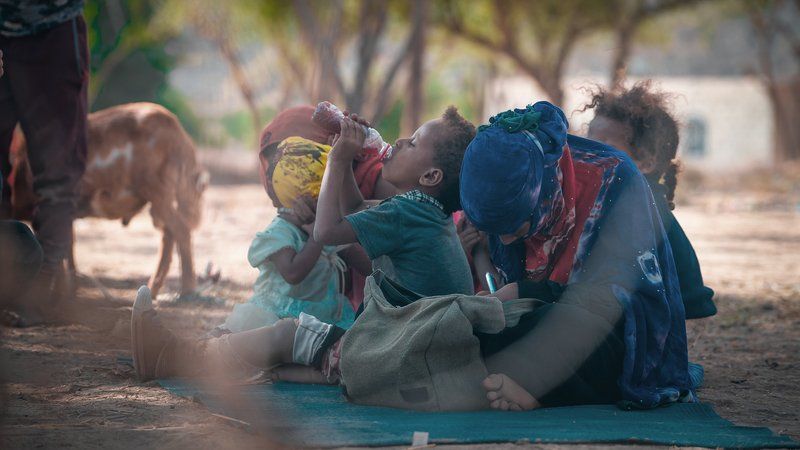
Local Editor
The crisis in Yemen is forcing families to take desperate measures to survive- including marrying off children as young as three, the charity Oxfam has warned.
The warning comes as countries meet in Geneva Tuesday to pledge humanitarian aid for the war-torn country.
Oxfam spoke to families in Amran region in the north of the country who have been left hungry and isolated after fleeing their homes.
Some said they had been forced to marry off their daughters. In one case a girl as young as three years old was married off by her father in order to buy food and shelter so that the rest of the family could survive.
Oxfam says that although early marriage has long been a practice in Yemen, the marrying off of girls at such an early age to buy food is shocking.
But the charity says families are becoming increasingly desperate. It says younger girls are usually spared consummating the marriage until they have reached 11 years old but before that are made to do household work in their husband's home.
Nine-year-old Hanan* used to go to school but since she was married, she has had to stop.
Hanan said: "My mother in law keeps beating me, and when I run away back to my father's house, my father beats me again for running away. I don't want to be married. I just want to go back to school."
Hanan's parents, who also married off her three-year-old sister, told Oxfam they knew marrying off their daughters at such a young age was wrong, but felt they had no choice because the dowry paid in return was the only way of keeping the rest of the family alive.
Oxfam's Yemen Country Director Muhsin Siddiquey said: "As this war has gone on, people's means of coping with devastating levels of hunger have become more and more desperate. They're being forced to take steps that blight their children's lives now and for decades to come.
"This is a direct result of a man-made humanitarian catastrophe caused by the conflict. The international community needs to do everything in its power to bring an end to the fighting and ensure people have the food, water and medicine they so desperately need."
The United Nations has been trying to help implement a truce deal which was agreed at peace talks in December between the Houthis and the Saudi-backed resigned regime.
The first phase of the withdrawal involves forces around the key port of Hodeida- the Red Sea port used to bring in supplies for Yemen’s 30 million people.
But the withdrawal process has stalled and its not yet clear what the impact will be.
Siddiquey added: "Donors meeting today in Geneva to pledge assistance to Yemen need to make sure there's enough funding to get vital food, water and medicine to meet people's basic needs. But only an end to the conflict can halt the downward spiral that is forcing people to take desperate measures. All warring parties and their backers need to fully commit to a nationwide ceasefire and take concrete steps towards a lasting peace."
UNICEF says up to 80% of children in Yemen are currently in need of humanitarian assistance and two million children under the age of five are acutely malnourished.
Since the conflict escalated in 2015, food prices in Yemen have soared while household incomes have fallen, pushing the costs of basic foods beyond the reach of many.
Around 1.2 million Yemeni children live in conflict zones in war-battered Yemen, the UN children's agency UNICEF said Monday.
The children "continue to live in 31 active conflict zones including Hodeida, Taiz, Hajjah and Saada - in areas witnessing heavy, war-related violence," Geert Cappelaere UNICEF Regional Director for the Middle East and North Africa, said in a statement.
"Not enough has changed for children in Yemen since the Stockholm agreement on 13 December 2018," the official said.
(*Name has been changed to protect identity)
Source: News Agencies, Edited by Website Team